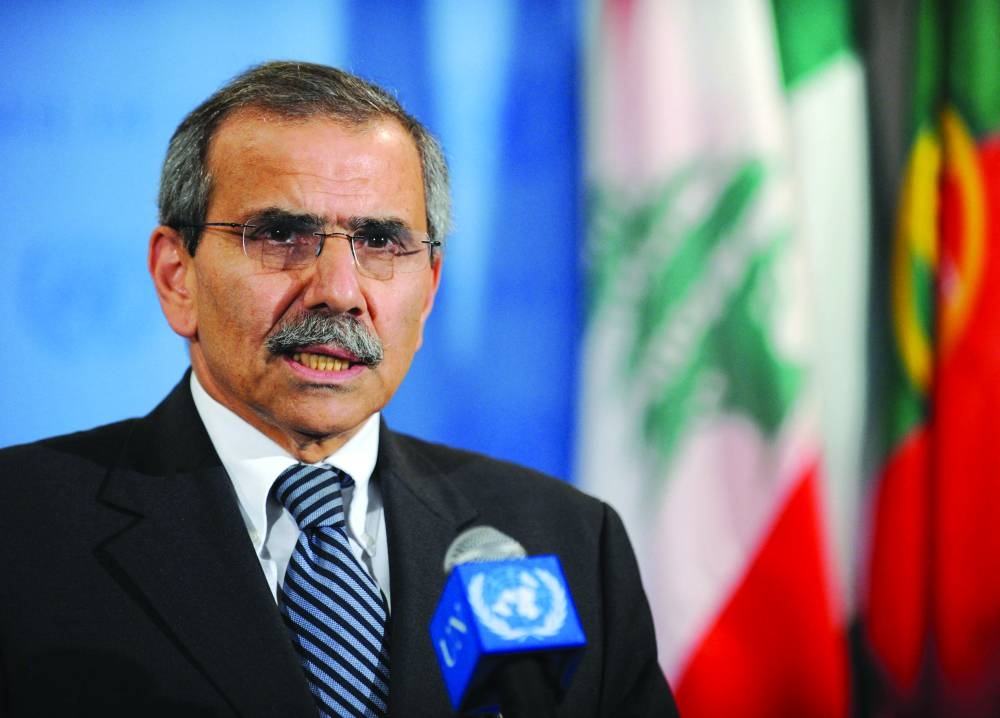Lebanese President Joseph Aoun summoned Nawaf Salam, head of the International Court of Justice, to designate him prime minister after most lawmakers nominated him yesterday.
The choice of Salam underlined the major shift in the power balance among Lebanon’s sectarian factions since the Hezbollah group was pummelled in a war with Israel last year, and its Syrian ally Bashar al-Assad was toppled.
The presidency said Salam, currently outside the country and due to return today, had secured the backing of 84 out of parliament’s 128 lawmakers, and Aoun had summoned him to assign him to form the government.
Salam won backing from Christian and Druze factions, and other prominent MPs, including Hezbollah allies and opponents of the group who have long demanded it give up its powerful arsenal, arguing it has undermined the state.
But lawmakers from Hezbollah and its ally the Amal Movement, which hold all the seats reserved for the community in parliament, did not name anybody, indicating they currently do not intend to participate in Salam’s government and raising the prospect of a sectarian rift if they remain outside cabinet.
Senior Hezbollah lawmaker Mohammed Raad, whose group had wanted incumbent Najib Mikati to stay in the post, said Hezbollah’s opponents were working for fragmentation and exclusion. He said the group had “extended its hand” by electing Joseph Aoun as president last week only to find the “hand cut”.
“Any government at odds with coexistence has no legitimacy whatsoever,” Raad said. The group would act calmly and wisely “out of concern for the national interest”, he added.
Last week’s election of army commander General Aoun, who enjoys the support of the United States and Saudi Arabia, was another sign of shifts in the political landscape, in which Hezbollah had long held decisive sway.
Aoun’s election and the designation of a new premier are steps towards reviving Lebanese government institutions which have been paralysed for more than two years, with the country having neither a head of state nor a fully empowered cabinet.
Faisal Karami, a lawmaker aligned with the group, said he had nominated Salam, citing demands for “change and renewal” and pledges of Arab and international support for Lebanon.
Christian lawmaker Gebran Bassil said Salam was the “face of reform”. “Hope is in change,” he said.
The new administration faces huge tasks including rebuilding areas levelled by Israeli air strikes during the war with Hezbollah, and launching long-stalled reforms to revive the economy and address the root causes of the collapse of Lebanon’s financial system in 2019.
Aoun said he hoped for a smooth and fast government formation because “we have great opportunities abroad”, a reference to pledges of foreign support.
Lebanon has a sectarian power-sharing system, which parcels out state positions on the basis of religious affiliation. The presidency goes to a Maronite Christian.
Hezbollah lawmakers attended their meeting with Aoun later than scheduled, delaying their arrival as they saw the momentum building behind Salam.
Hezbollah believed a political understanding had been reached on Mikati’s election before the group agreed to elect Aoun last week, the source said.
Salam took over the presidency of the ICJ, which is based in The Hague, as it held its first hearing in 2024 on a case filed by South Africa accusing Israel of genocide in the Gaza Strip, which Israel has dismissed as baseless.
Aoun, in his former role as commander of the US-backed army, played a critical role in the implementation of a US-brokered ceasefire deal between Israel and Hezbollah.
The terms require the Lebanese army to deploy into south Lebanon as Israeli troops and Hezbollah withdraw forces.
International
Lebanon’s Nawaf Salam to be designated PM
* President Aoun summons ICJ chief Judge Salam to designate him PM
* Choice underlines shift in Lebanon's power balance

Nawaf Salam.
